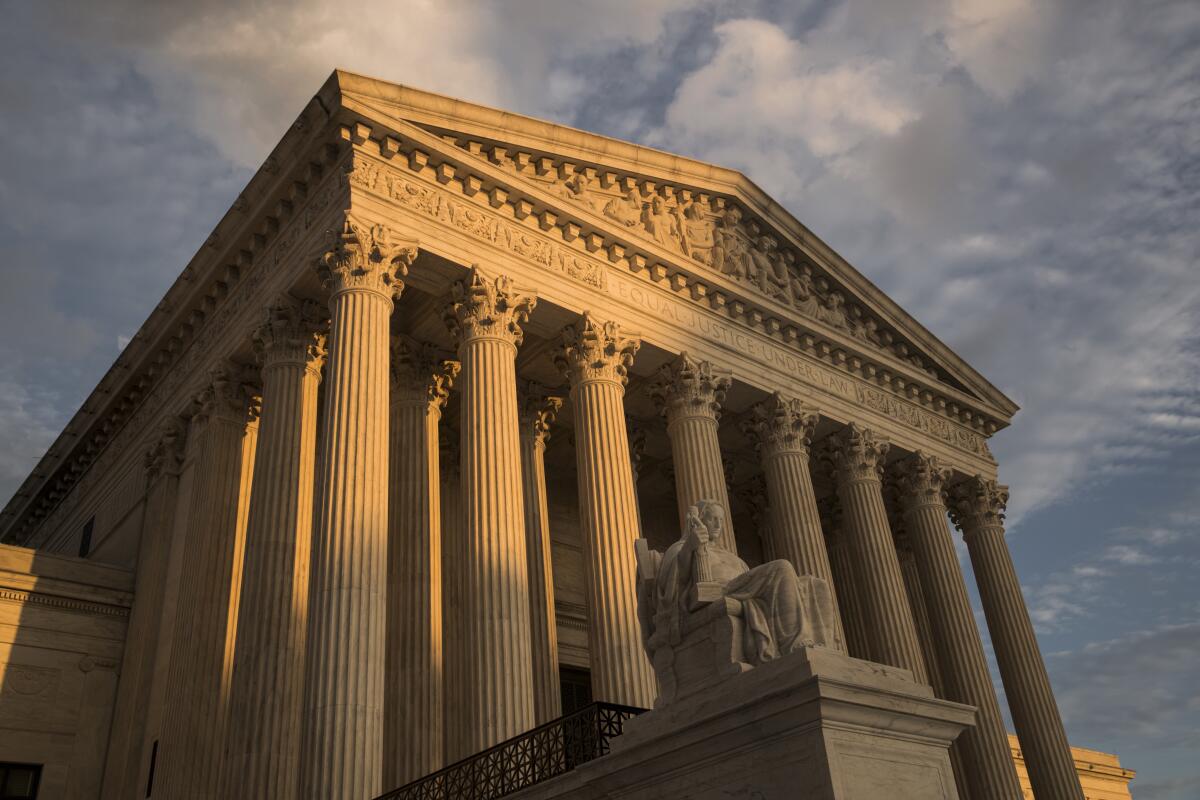Supreme Court leaves in place Kentucky law requiring ultrasounds before abortions

- Share via
WASHINGTON — The Supreme Court on Monday left in place a Kentucky law requiring doctors to perform ultrasounds and show fetal images to patients before abortions.
The justices did not comment in refusing to review an appeals court ruling that upheld the law.
The American Civil Liberties Union had challenged the law on behalf of Kentucky’s lone remaining abortion clinic. The ACLU argued that “display and describe” ultrasound laws violate physicians’ speech rights under the 1st Amendment.
The federal appeals court in Cincinnati upheld the Kentucky law, but its sister court in Richmond, Va., struck down a similar measure in North Carolina.
The Supreme Court had previously upheld “informed consent” laws for women seeking abortions. The court will hear an abortion case in March, over Louisiana’s attempt to require doctors who perform abortions to have admitting privileges at local hospitals.
Doctors’ speech also has been an issue in non-abortion cases. The federal appeals court in Atlanta struck down parts of a 2011 Florida law that sought to prohibit doctors from talking about gun safety with their patients. Under the law, doctors faced fines and the possible loss of their medical licenses for discussing guns with patients.
In Kentucky, doctors must describe the ultrasound in detail while the pregnant woman listens to the fetal heartbeat. Women can avert their eyes and cover their ears to avoid hearing the description or the fetal heartbeat. Doctors failing to comply face fines and can be referred to the state’s medical licensing board.
The ACLU called the law unconstitutional and unethical. ACLU lawyer Alexa Kolbi-Molinas said that the Supreme Court “has rubber-stamped extreme political interference in the doctor-patient relationship.”
The law was passed in 2017 and was signed by the state’s anti-abortion governor, Republican Matt Bevin. He narrowly lost his reelection bid last month. But Republicans remain in control of the state legislature.
More to Read
Sign up for Essential California
The most important California stories and recommendations in your inbox every morning.
You may occasionally receive promotional content from the Los Angeles Times.










